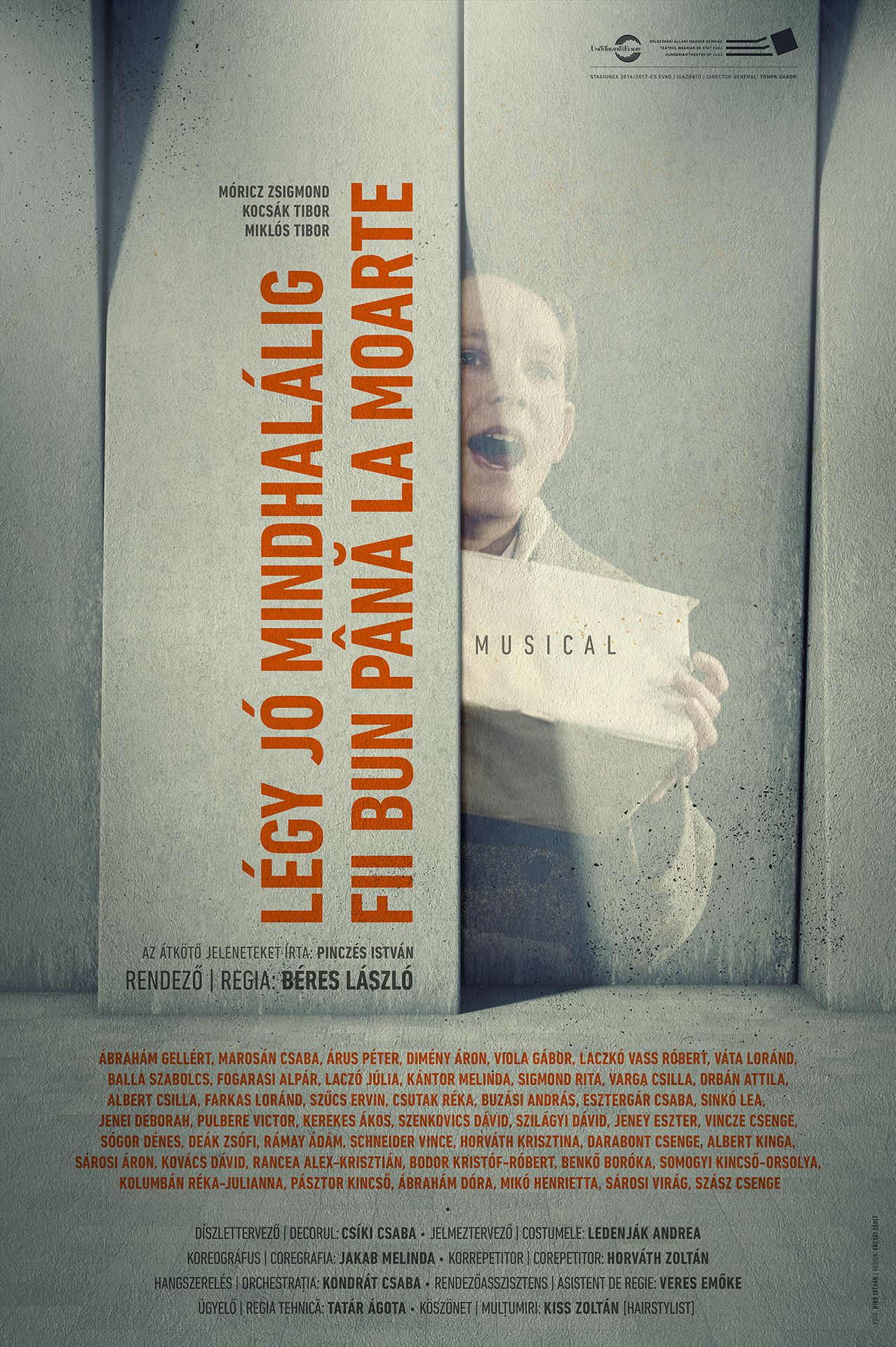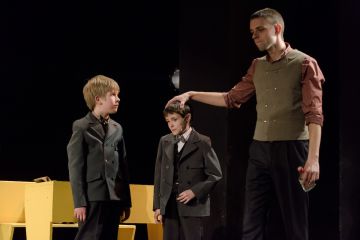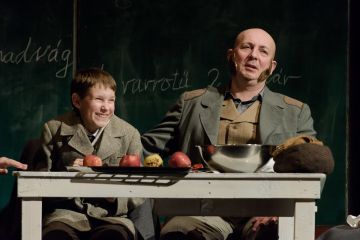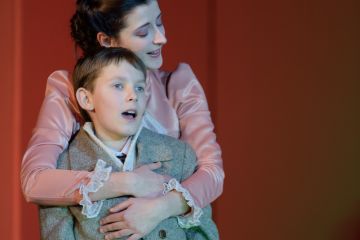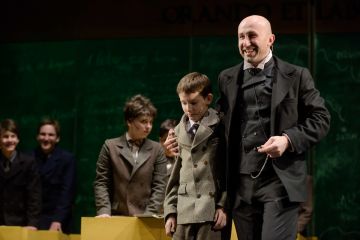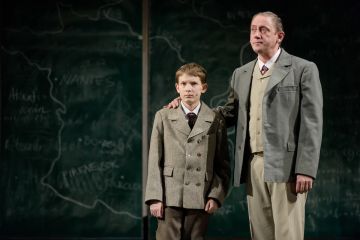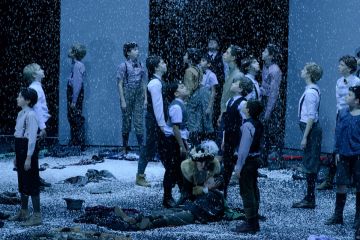Zsigmond Móricz – Tibor Kocsák – Tibor Miklós
Be Faithful Unto Death
A musical
Main stage
RO

3h with intermission
Nyilas Misi
Gellért Ábrahám
Orczy
Csaba Esztergár / Lea Sinkó
Gimesi
Deborah Jenei / Victor Pulbere
Böszörményi
Ákos Kerekes / Dávid Szenkovics
Tök Marci
Dávid Szilágyi / Eszter Jeney
Csicsó
Csenge Vincze / Dénes Sógor
Szegedy
Zsófi Deák / Ádám Rámay
Tannenbaum
Vince Schneider / Krisztina Horváth
Andrási
Csenge Darabont / Kinga Albert
Sándor Mihály
Áron Sárosi / Dávid Kovács
Mr Nagy, student
Csaba Marosán
Mr Lisznyay, student
Péter Árus
Principle
Áron Dimény
Valkay, geography teacher
Gábor Viola
Gyéres, headmaster
Róbert Laczkó Vass
Sarkadi, teacher
Lóránd Váta
Bagoly, teacher
Szabolcs Balla
Mr István
Alpár Fogarasi
Mrs Doroghy
Júlia Laczó
Viola
Melinda Kántor
Bella
Rita Sigmond / Andrea Vindis
Doroghy Sanyika
Alex-Krisztián Rancea / Kristóf Bodor
Mrs Török
Csilla Varga
Mr Török
Attila Orbán
Miss Ilonka
Csilla Albert
Török János
Loránd Farkas
Mr Pósalaky
Ervin Szűcs
Housekeeper
Réka Csutak
Police officer
András Buzási
Students
Boróka Benkő, Kincső Somogyi
And: Kolumbán Réka, Pásztor Kincső, Ábrahám Dóra, Somogyi Kincső, Mikó Henrietta, Sárosi Virág, Szász Csenge
directed by
László Béres set design
Csaba Csíki costume design
Andrea Ledenják choreography
Melinda Jakab correpetition
Zoltán Horváth musical consultant
Csaba Kondrát director's assistant
Emőke Veres stage manager
Réka Zongor
Gellért Ábrahám
Csaba Esztergár / Lea Sinkó
Deborah Jenei / Victor Pulbere
Ákos Kerekes / Dávid Szenkovics
Dávid Szilágyi / Eszter Jeney
Csenge Vincze / Dénes Sógor
Zsófi Deák / Ádám Rámay
Vince Schneider / Krisztina Horváth
Csenge Darabont / Kinga Albert
Áron Sárosi / Dávid Kovács
Csaba Marosán
Péter Árus
Áron Dimény
Gábor Viola
Róbert Laczkó Vass
Lóránd Váta
Szabolcs Balla
Alpár Fogarasi
Júlia Laczó
Melinda Kántor
Rita Sigmond / Andrea Vindis
Alex-Krisztián Rancea / Kristóf Bodor
Csilla Varga
Attila Orbán
Csilla Albert
Loránd Farkas
Ervin Szűcs
Réka Csutak
András Buzási
Boróka Benkő, Kincső Somogyi
And: Kolumbán Réka, Pásztor Kincső, Ábrahám Dóra, Somogyi Kincső, Mikó Henrietta, Sárosi Virág, Szász Csenge
directed by
László Béres
Csaba Csíki
Andrea Ledenják
Melinda Jakab
Zoltán Horváth
Csaba Kondrát
Emőke Veres
Réka Zongor
Date of the opening: january 14, 2017
The story of Be Faithful Unto Death is well-known to many people - who is not familiar with the package, the lost lottery ticket stub, the particular tragedy of little Misi. For me, Be Good is a motto, which we tend nowadays to use as a commonplace saying, not attributing an underlying content to it and thus not searching for its meaning. I believe to be good is equal to being honest, and to the efforts exerted in striving for honesty. In spite of the systems and expectations that surround us, it is always and forever important to remain ourselves. This story is about nothing else but staying true to one’s self.
László Béres









